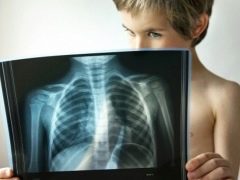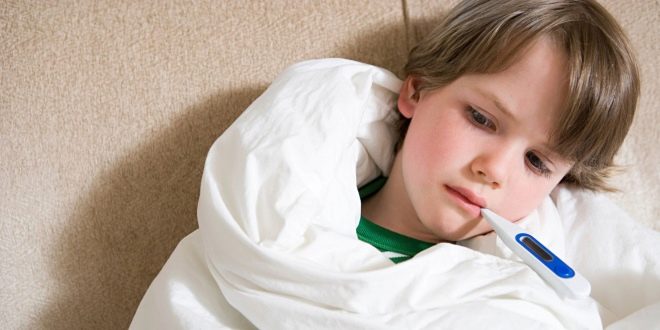Psychosomatics of pneumonia in children and adults
Pneumonia is a dangerous lung disease that every year is found in at least 17 million people on the planet. Men and boys suffer from the disease more often than women and girls. The group of special risk includes children under 5 years old and the elderly. In this case, the disease is one of the most common causes of death among children and the elderly.
In this article we will look at the psychological aspects of pneumonia.
general information
Pneumonia is an inflammatory process in the tissues of the lungs. Most often it is infectious in nature and is accompanied by lesions of the alveoli. One concept includes several types of diseases with lung tissue damage. They can vary in the type of pathogen, the mechanism and nature of the lesion.
To establish such a diagnosis "by eye" is impossible. If the doctor suspects pneumonia due to characteristic pulmonary rales, he is obliged to send X-rays to the lungs and laboratory examination of sputum.that will give grounds for establishing the diagnosis and prescribing the appropriate treatment.
According to statistics, every 65 people die from pneumonia. For the rest, it presents the danger of complications for other organs and systems.
Psychosomatic causes
Respiratory organs perform an essential function, without which human existence is impossible. Think about it - breathing in the air, we not only get a portion of oxygen to sustain life in our body, but also breathe life itself. In the external environment on the exhale, we give carbon dioxide. So there is a mutual exchange with the world - we take something and give something back. This is the only correct mechanism.
If a person's interaction with the world around him, people, events is disturbed, his breathing is disturbed. It becomes shallow, a person inhales life with caution, the likelihood of developing lung ailments, including pneumonia, increases.
To breathe easily and freely with a full breastfeed person can interfere with someone, something, or even himself. WHO statistics indicate that men are more susceptible to the disease.
There may be several reasons for pneumonia.
- Man does not allow himself to breathe deeply, because he believes that he himself does not deserve such a “luxury” - to be free. The children's installation, which was formed because the boy more often than girls, say the word "must": "you have to go to the section to learn to fight," "you are a man, you need to get a good monetary profession", "you have to serve in army. Under the burden of all these "necessary", to which is then added the need to be financially independent, not to cry and be restrained, the need to feed your own children and wife, there is no place for personal desires. Breathe deeply fails.
- A person feels a strong fear (before the future, before possible problems), but suppresses it, trying to seem strong, calm, resolute and decisive. Untold fears block free breath with a full chest.
- Men are more likely than women to be disappointed in life and people.they are bored with everyday life, routine, routine. The lack of "breath of fresh air" in the life planned to the smallest detail is also a risk factor. In general, the same reasons explain pneumonia in women. A simple and simple analysis of this information explains why the ailment is more widespread among young men and men.
In children and adults (but more often in small ones), pneumonia develops when it is impossible to express their protest, disagreement with the state of things, with someone from the environment. The inability to say words on the physiological level is manifested by coughing. Bronchitis develops, followed by pneumonia.
If a person, regardless of his age, perceives the world as hostile, cautiously, as a threat to his own safety, then the likelihood of pneumonia rises in proportion to the aggression that a person has inside towards others.
A simple example: pneumonia is often a complication of an acute viral infection (ARVI, flu). At the same time, one child recovers from acute respiratory viral infections within five days and without complications, and another with the same adequate treatment and care enters the hospital with pneumonia. Psychologists say with high probability that the second child is in a psychologically unfavorable atmosphere at home and cannot express his protest, therefore the pulmonary pathology develops.
note that parents' authorities, authoritarian, who routinely impose their decisions on their children, their opinions, usually complain about the health of the lungs in children.. By and large, nobody asks the toddler, which section does he want to attend, and does he need Spanish courses himself? He dutifully attends classes, because so want parents. And in the soul accumulated resentment and irritation, which pours out once pneumonia. And also parents who are too “strangling” children with love and constant care, raised to the pathological stage, are at risk of treating their children from pneumonia.
Often, according to the observations of psychotherapists, pneumonia is preceded by emotional shock, an important unpleasant event for a person, which takes a lot of vitality. He gets tired, brings himself to psychological exhaustion, accumulates resentment and anger at the world, as a result he becomes ill with inflammation of the lung tissue.
Do not forget that the psychosomatics of pneumonia is based precisely on latent aggression and anger. These destructive emotions and cause the development of inflammation in the lungs. Just suppressed emotions without aggression usually lead to the development of pleurisy. And prolonged depression on the background of mistrust of the world usually leads to the development of tuberculosis.
Treatment
Pneumonia necessarily requires traditional treatment prescribed by a doctor. At the same time, we should not forget about the psychosomatic component - it is important to work on the mistakes, if necessary, contact the person who will help correct the mistakes and do everything correctly - a psychotherapist or a clinical psychologist. This is especially important if pneumonia began in a child.
People who are in harmony with the outside world, who freely accept everything new from the outside and easily part with the old (breathe easily and exhale at the physiological level), usually do not have problems with the respiratory system. Situations and people can meet different, it is important to be able to control your emotions, especially if it is insult and anger.
The less a person enjoys life (which we usually observe in elderly patients), the higher the likelihood of pneumonia. Increasingly, both children and adolescents, who are completely unable to enjoy life, are not accustomed by their parents. They are the very risk group in terms of the likelihood of developing pulmonary pathologies.
As a prophylaxis, only one can be advised: learn to enjoy every day, every little thing, pay attention to their childrenbecause you can not just show your child how the Christmas ball is technically hung on the Christmas tree, you can tell him that this beautiful and bright ball is like his wishes, that he will surely help them to be fulfilled, because it is not simple, but magical. The process of collecting the Christmas tree will turn into a joy for the child, and will bring joy to the adult family members.
Show your child that you can enjoy not only the gift in the form of the latest model phone, but also beautifully packaged candy, a beautiful hand-made postcard. Such children become accustomed to notice the beautiful in the household trifles, and then this good habit does not allow them to become depressed in times of loss, loss, upheavals that occur in the way of each person. The best that can be given to a child in childhood is not expensive toys and pocket money, but the ability to perceive the world positively, joyfully.
If pneumonia is an accomplished fact, you should think about what destructive and destructive attitudes led to pathology.
It is important to identify and eliminate them, replacing them with positive ones. This will also help the method of gaining children's joy - after all, smiling at a kitten on the street or on a winter morning is not difficult and short. Do not be afraid to seem ridiculous or ridiculous.
Joy will gradually but surely return to your everyday life, and with it the outlook on people and events will become more positive, which will allow you to enjoy life, breathe deeply, get rid of lung disease.
















